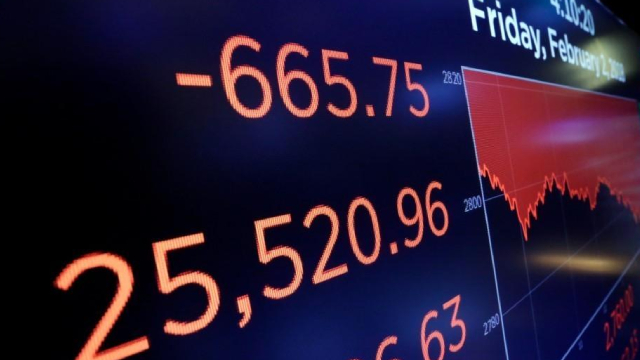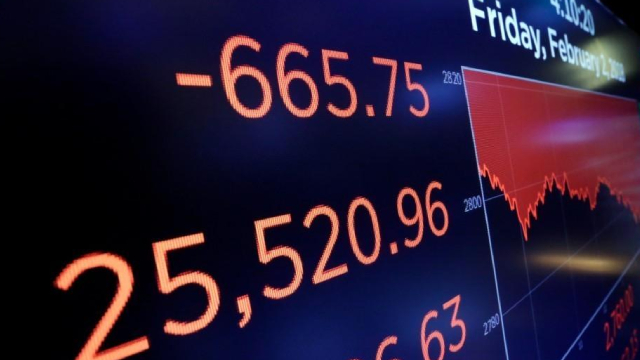
Vanguard Consumer Discretionary ETF (VCR)

VCR: Consumer Discretionary Sector Dashboard For November
The consumer discretionary sector is slightly overvalued relative to 11-year averages. The consumer services subsector still looks attractive thanks to an excellent quality score. Vanguard Consumer Discretionary Index Fund ETF Shares is a suitable alternative to XLY for long-term investors, but the latter is a better trading instrument.

5 Low-Cost Vanguard ETFs That Just Surged to All-Time Highs After the Election
Investors continue to gravitate toward megacap growth stocks that show no signs of slowing down.

Should You Invest in the Vanguard Consumer Discretionary ETF (VCR)?
The Vanguard Consumer Discretionary ETF (VCR) was launched on 01/26/2004, and is a passively managed exchange traded fund designed to offer broad exposure to the Consumer Discretionary - Broad segment of the equity market.

The Fed Just Lowered Interest Rates. Here's My Top Vanguard ETF to Buy Now.
Lower interest rates can boost consumer discretionary spending. The Vanguard Consumer Discretionary ETF is an excellent way to invest in a variety of industries that benefit from higher spending on goods and services.

Should You Invest in the Vanguard Consumer Discretionary ETF (VCR)?
Launched on 01/26/2004, the Vanguard Consumer Discretionary ETF (VCR) is a passively managed exchange traded fund designed to provide a broad exposure to the Consumer Discretionary - Broad segment of the equity market.

VCR: Why The Consumer Discretionary Stocks Decline Could Be An Opportunity
VCR offers a well-constructed and highly competitive solution among U.S. consumer discretionary-themed ETFs, with performance and an expense ratio in line with the sector. Recent economic data seems to rule out a U.S. recession, even though a Fed rate cut in September appears to be a foregone conclusion. Consumer discretionary stocks historically show greater sensitivity to monetary policy easing compared to the SPY itself.

Even Though It's the Only Vanguard Sector ETF That Is Down in 2024, I Have High Hopes for This Fund Over the Next 5 Years
Consumer discretionary has been the worst-performing sector year to date. Economic indicators provide insight into why the sector is lagging the broader market.

VCR: Consumer Discretionary Sector Dashboard For July
Monthly article series provides a dashboard with aggregate subsector metrics in Consumer Discretionary. Consumer services are the most attractive subsector based on value and quality scores, while the auto and components industry is below its baseline regarding both scores. Vanguard Consumer Discretionary Index Fund ETF Shares is an alternative to XLY.

Consumer Discretionary ETF (VCR) Hits New 52-Week High
For investors seeking momentum, Vanguard Consumer Discretionary ETF VCR is probably on the radar. The fund just hit a 52-week high and is up about 32% from its 52-week low price of $247.52/share.

Should You Invest in the Vanguard Consumer Discretionary ETF (VCR)?
If you're interested in broad exposure to the Consumer Discretionary - Broad segment of the equity market, look no further than the Vanguard Consumer Discretionary ETF (VCR), a passively managed exchange traded fund launched on 01/26/2004.

VCR: Fueled By Amazon, But Weighed Down By Tesla
Vanguard Consumer Discretionary ETF is a hold due to key risk factors, including competition dragging down Tesla and potential declines in consumer spending during recessions. VCR is a passively managed ETF with 303 holdings and $6.06B in AUM, focusing on broadline retail companies, automobile manufacturers, and restaurants. VCR has seen slightly lower returns compared to the S&P 500, has a low expense ratio, and average dividend yield.

Over Half of Vanguard's Sector ETFs Are Within 3% of All-Time Highs. Here's My Top Pick to Buy Now
Many sectors are hitting all-time highs due to earnings growth and investor optimism. The consumer discretionary sector is down for a multitude of good reasons.







